Today we live in a society, which can not imagine life without expressing views on social media. Probably it does have certain advantages. Nevertheless, many participants of active discussions have already forgotten or do not even know about the developments, which unfolded in Armenia 5, 10 or 15 years ago.
To fill the gap Mediamax presents 5/10/15 project, which introduce developments in Armenia 5, 10 and 15 years ago.
• 15 YEARS AGO: JULY 13-19, 2005
“Will be equal to state treason”
On July 15, former adviser of Azerbaijani President Vafa Guluzade stated that official Baku shouldn’t agree to a referendum in Nagorno Karabakh, “since this will bring to the loss of Azerbaijan’s native lands”.
“The Minsk Group offers the government of Azerbaijan to accept the fact of territories’ loss and make open concessions to Armenia, one of which is the signing of the agreement on holding a referendum in Nagorno Karabakh,” Guluzade said.
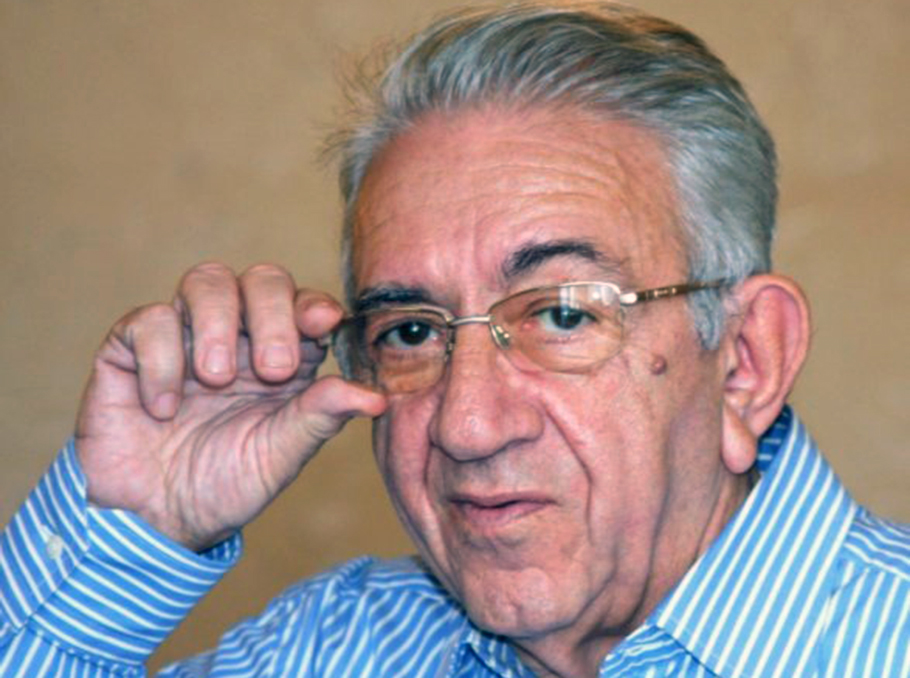 Vafa Guluzade
Vafa Guluzade
According to him, the mediators have prepared a “very simple trick” and suggest holding a referendum in Nagorno Karabakh not right after the return of the territories around Karabakh to Azerbaijan, but, for instance, in some 10 years. The former adviser of Azerbaijani President said “this step will be equal to state treason”.
“Performance”
On July 15, President of the Nagorno-Karabakh Republic (NKR), Arkady Ghukasian, said that “if the leadership of Azerbaijan doesn’t want to perceive Nagorno Karabakh as a party in the conflict, this means that it doesn’t want a settlement”.
Arkady Ghukasian described the behavior of Azerbaijani authorities as a “performance” and pointed out that the problem cannot be solved without the participation of Nagorno Karabakh.
Fraught with huge risks
On July 19, U.S. Ambassador to Armenia John Evans said in an exclusive interview with Mediamax that any attempt to falsify the results of the upcoming parliamentary and presidential elections in 2007 and 2008 will create a big problem for Armenia.
“The United States believes that the elections scheduled for 2007 and 2008 in Armenia must be free and fair, and perceived as such by the Armenian electorate, as well as by international observers,” U.S. official told stated.
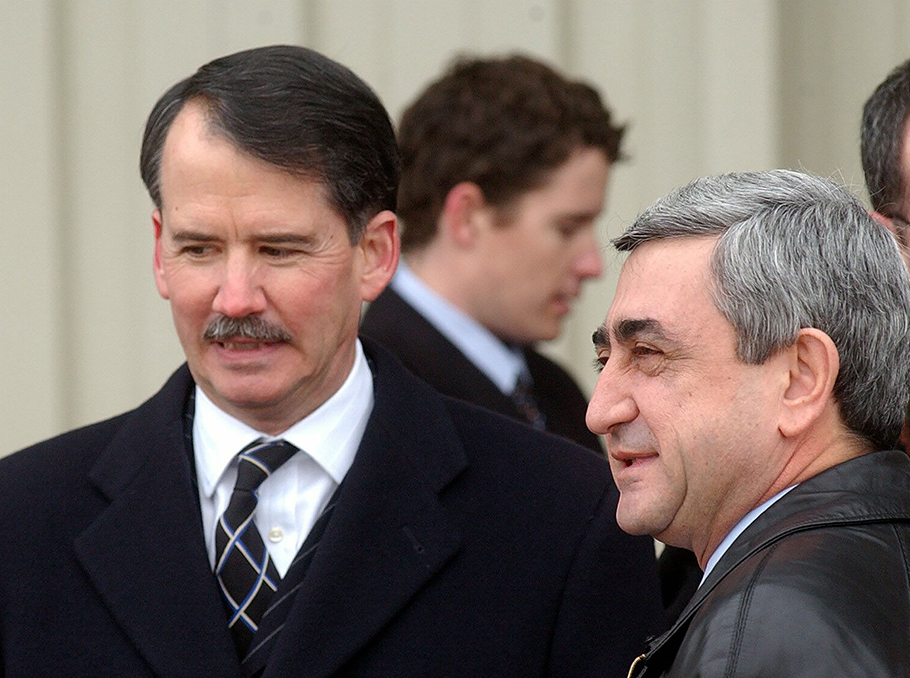 John Evans and Armenian Defense Minister Serzh Sargsyan in 2005
John Evans and Armenian Defense Minister Serzh Sargsyan in 2005 Photo: Photolure
“The lesson of some other elections in this region ought to be clear to anyone tempted to falsify election results: the people are not stupid, and they will figure it out, and that will create a big problem, fraught with great risks,” John Evans said.
• 10 YEARS AGO: JULY 13-19, 2010
The statement of initiators of DILIJAN International School project
On July 15, initiators of DILIJAN International School project sent an open letter to the members of the Public Council of Armenia in connection with discussions, which have developed in the society around the introduction of changes to the law on “Language”.
The authors of the letter noted that DILIJAN International School is a private philanthropic project involving no state funding. Planned investments in the project exceed $ 60 million, which does not include money from the fund to support talented children from impoverished families.
“One should note that about 80% of Armenian children will be studying free of charge, on scholarship from charitable organizations and individuals”, the authors of the letter noted, stressing that “the fact that our students are elite ones is conditioned by their intellectual abilities and not by the wealth of their parents”.
The letter said that upon completion of the school, its students will be issued an International Baccalaureate (IB) diploma, which opens the doors to the best higher learning institutes in different countries.
The authors of the letter stated that “because of an unfavorable combination of circumstances, our project has met with a negative reaction among the progressive and outspoken members of Armenian society”.
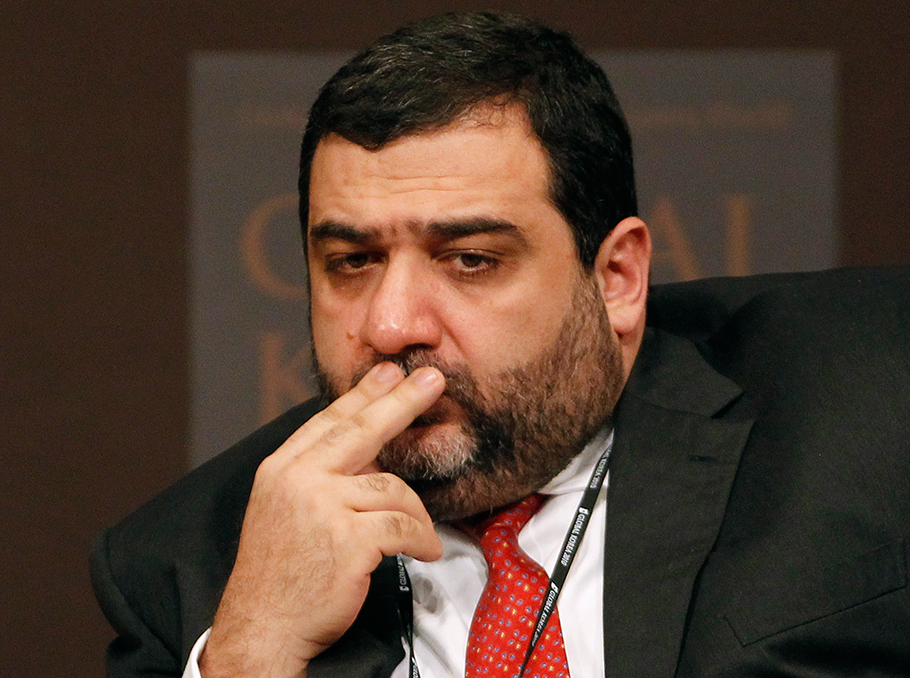 Ruben Vardanyan in 2010
Ruben Vardanyan in 2010 Photo: REUTERS
“At present, we are regrettably seriously considering the suspension of work on the project, as it is our belief that even without these additional obstacles to the successful realization of such a complex initiative, and even provided the full support of government and society, it will require an incredible amount of effort to convince parents to send their children to a country about which they know very little and which they do not conceive of as a place to live and receive an education”, the letter read.
The first stage of negotiations with EU
On July 19, the first round of negotiations on signing the Associated Agreement between Armenia and the European Union (EU) was held in Yerevan.
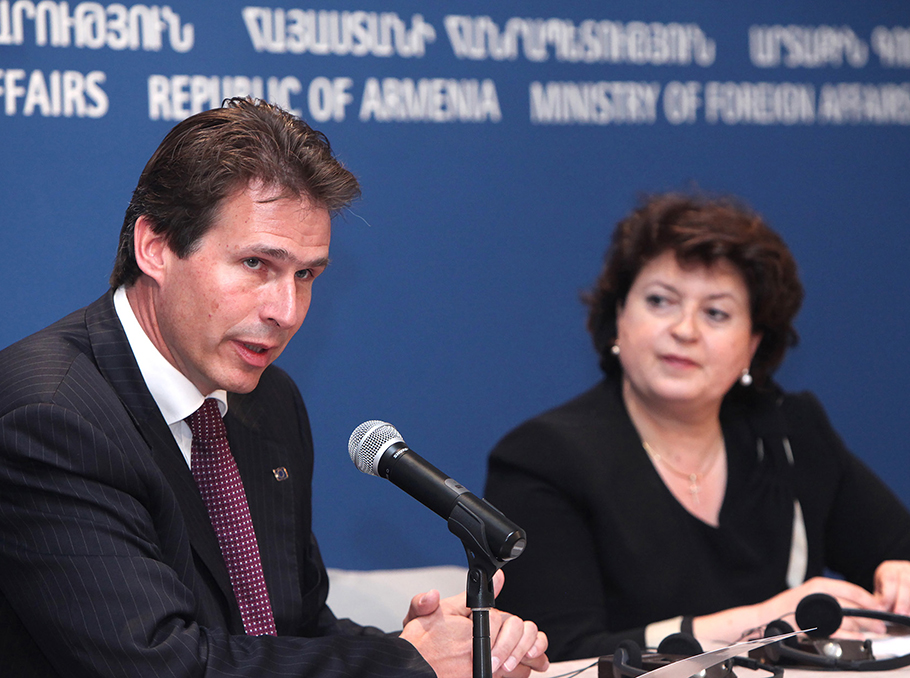 Gunnar Wiegand and Armenian Deputy FM Karine Ghazinyan
Gunnar Wiegand and Armenian Deputy FM Karine Ghazinyan Photo: Photolure
Representative of the European Union Gunar Wiegand spoke about the strategic interest of the sides to conclude this “ambitious and prospective agreement”. He expressed opinion that as a result of negotiations, Armenia will become a more attractive country both for foreign and local investors.
• 5 YEARS AGO: JULY 13-19, 2015
“Stable parliamentary majority”
On July 15, the preliminary version of Chapters 1-7 of the Constitution was published, in accord with which the National Assembly of Armenia will be comprised of at least 101 MPs elected in a proportional system, who should secure the formation of a “stable parliamentary majority.”
Ara Tadevosyan
















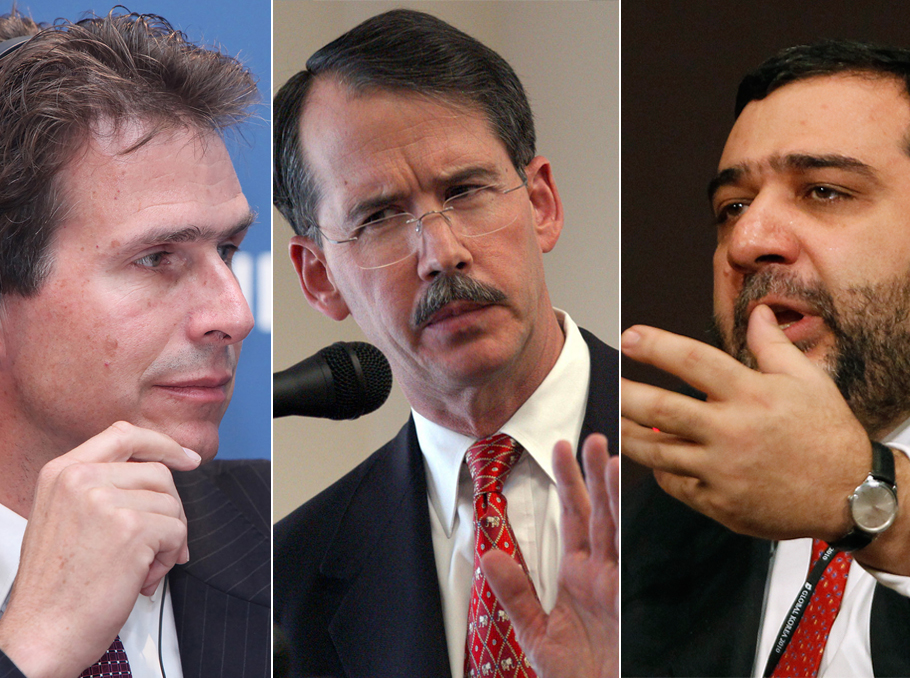

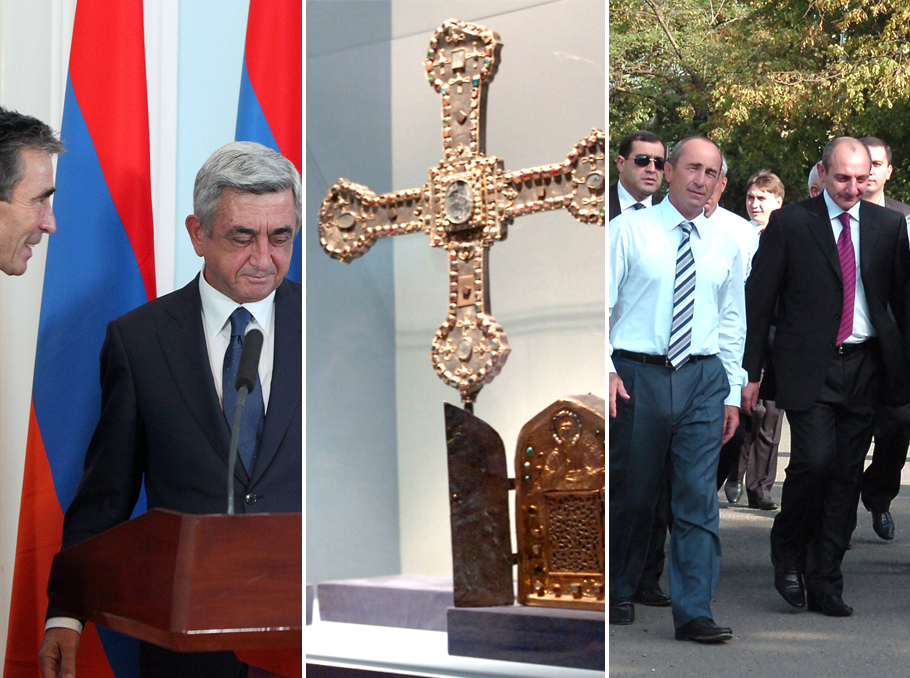
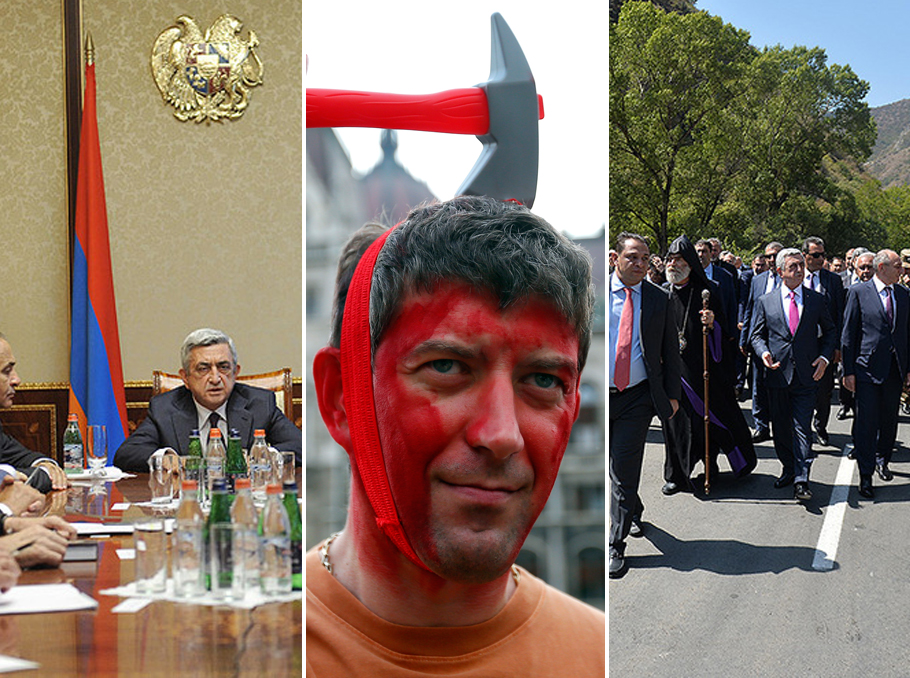
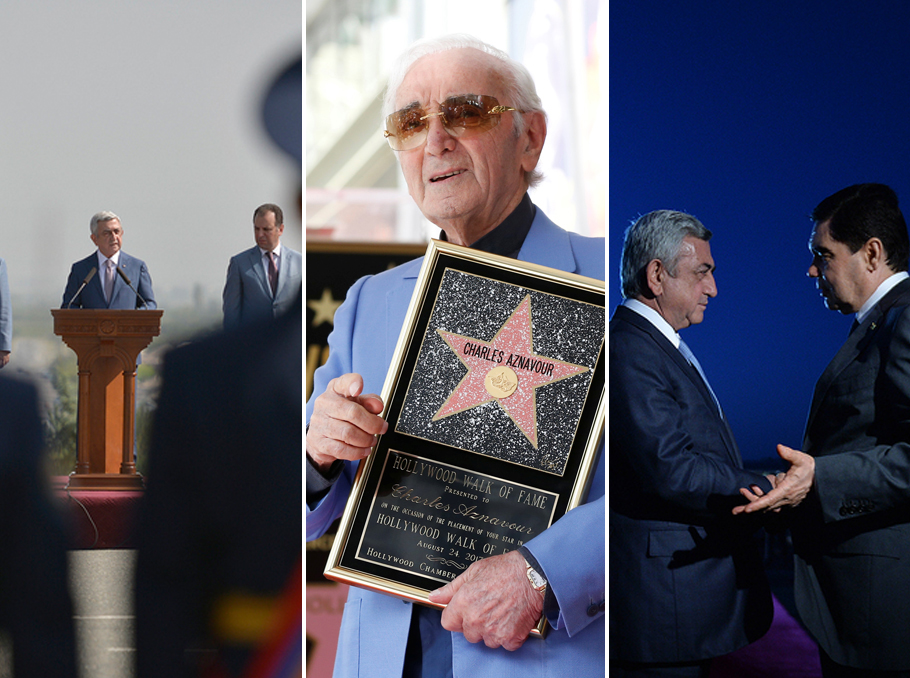
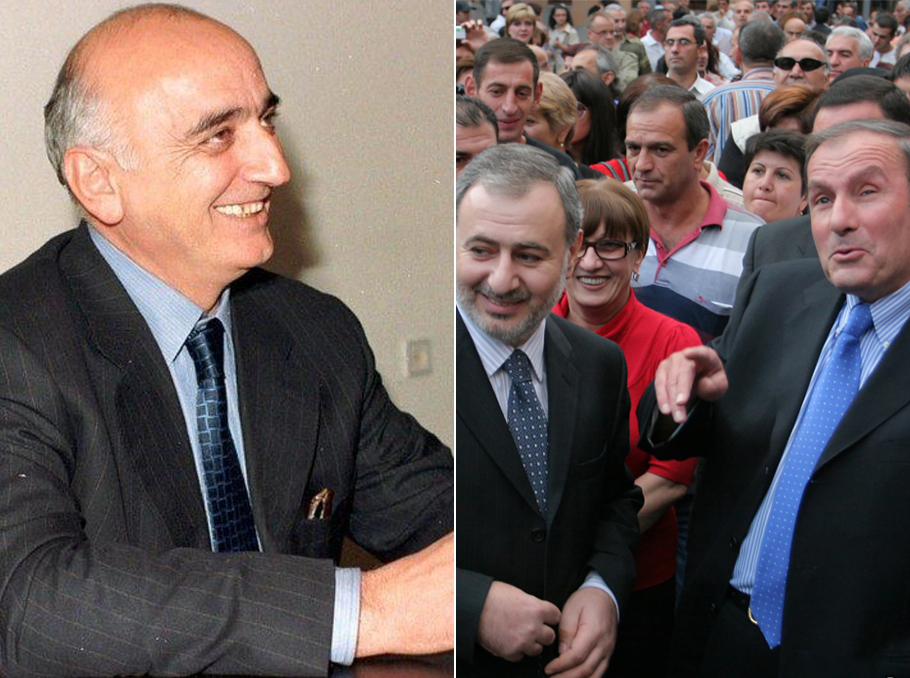
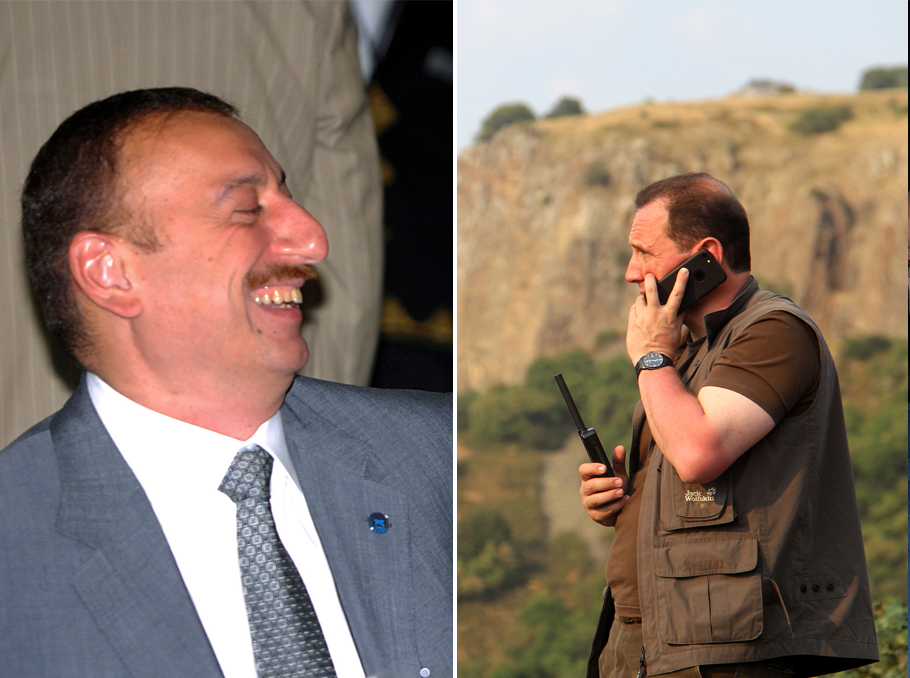





Comments
Dear visitors, You can place your opinion on the material using your Facebook account. Please, be polite and follow our simple rules: you are not allowed to make off - topic comments, place advertisements, use abusive and filthy language. The editorial staff reserves the right to moderate and delete comments in case of breach of the rules.